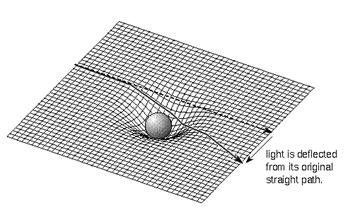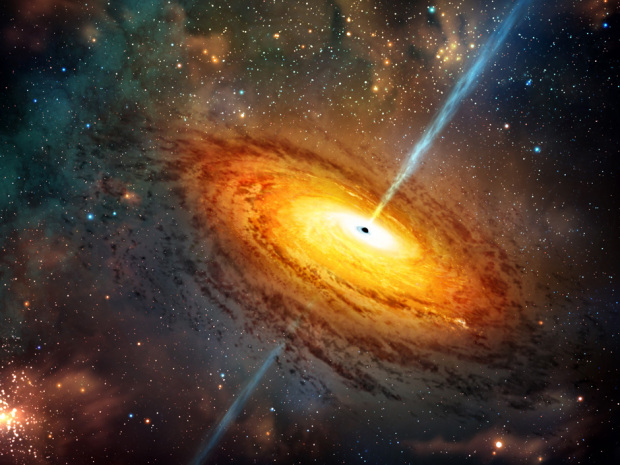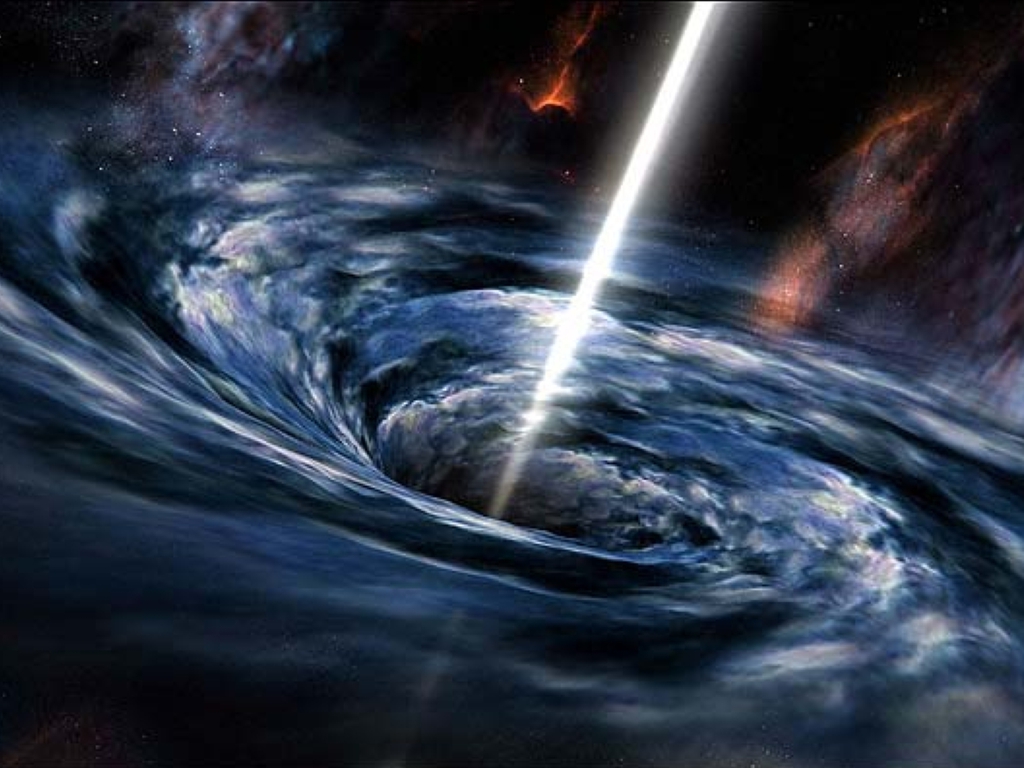Overview
The Limit of a Limitless Universe
Conclusion
Light
Although I have posited
the event horizon as the boundary of the universe, I do not
myself believe in this assertion. This is obviously
problematic, but it does have other implications about
problems that may exist in the accepted scientific beliefs
about the universe. The problem stems from the use of the
speed of light as the bench mark for the relativity of
space-time. If it is true that light is the speed limit,
then it is true that approaching the event horizon would be
approaching the infinite because if light cannot escape the
gravitational pull of a black hole at the event horizon,
then it must be true for other objects as well. But the fact
that something is pulling faster than the fastest moving
particle in the universe, light, is exactly what has been
troubling me. I also thought it was strange that light could
be bent at all by gravity since it does not have mass. But
doing some further research, I discovered that it is not
light that is bent but the geodesic of space-time. Light is
only following the bend in the manifold of space-time as
shown in the diagram below:

http://astronomyonline.org/images/ImagesFromPapers/CurvedLight.jpg
But it still did not answer the question
of how a black hole was able to pull faster than the fastest
speed? To me, it seemed that light was not the fastest
speed, but something very close to it. Doing some research,
I found out that gravity has a speed associated with it that
is approximately the speed of light, and there is some very
interesting research suggesting that it is faster than the
speed of light (Flandern). The speed of gravity is not
referring to the speed that objects can be pulled by gravity
but to the speed at which gravity propagates from an object.
For example, if the sun were to instantly vanish, all the
planets in our solar system would continue revolving around
it as if it were there for another 8 minutes, before flying
off into space.
Another interesting idea is the De
Broglie hypothesis which states that all matter exhibits
wave-like properties. He states that the wavelength of a
particle is equal to the Planck constant divided by its
momentum (Chang
292). Everyone talks about what a paradox it is
that light displays both particle and wave characteristics,
but when you consider that neutral atoms and even molecules
have been experimentally proven to exhibit quantum wave
behavior, it seems plausible that light may also have mass
(Arndt 680-682).
Light also has
momentum, but scientists use energy instead of mass when
calculating the momentum of light assuming that light is
massless. This is where I think the problem lies. We
currently define mass by its inertia. The mass of particles
have inertia because they are interacting with the Higgs
field, but certain particles will have a stronger
interaction with the Higgs field making the particle more
massive. Light does not have this inertial mass because it
does not interact with the Higgs field.
What I propose is that mass should be
defined by interaction with gravitational field rather than
the Higgs field. My intuition tells me that light does have
mass because it is affected by gravitational fields. I
believe that this may be the reason that light is be pulled
in by a black hole because the event horizon is pulling at
the true speed limit of the universe. To me, light with a
tiny mass traveling close to the maximum speed of the
universe, the speed of gravity, seems to be a better model
of what is actually happening in the universe.
As I have stated, if light is not
the fastest speed possible, the event horizon is no longer
the limit of space-time. Objects being pulled into a black
hole would still experience the same temporal and spatial
relativistic changes approaching the event horizon, but you
would no longer reach an infinite speed at the event horizon
meaning you would not go infinitely into the future and you
would not have an infinite contraction with respect to other
objects that are stationary relative to you. Thus, if you
accept the traditional notion of light as a massless
particle moving at the speed limit of the universe, the
event horizon becomes the limit of the universe because that
is when you approach the speed of light. If you reject the
notion that the event horizon is the limit of space-time,
then you are implicitly accepting that there is a speed
faster than the speed of light. I believe the latter to be
the case, but if you are interested in finding out more, you
should check out some of the websites I listed in the
reference section for more information. If you have any
questions about what I have written here, you can e-mail me
at chrisbon315@gmail.com



